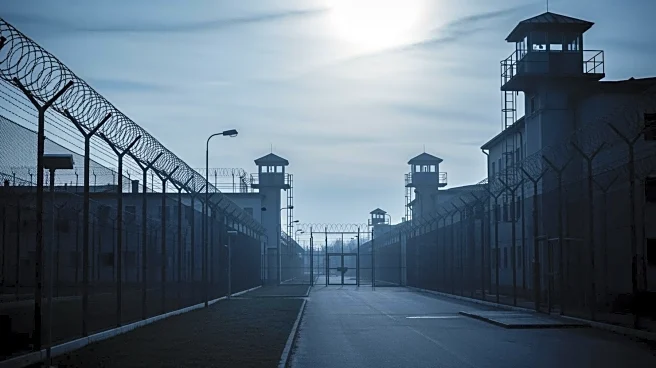What's Happening?
Senator Thom Tillis (R-N.C.) is leveraging his position on the Senate Judiciary Committee to block President Trump's judicial nominees in Mississippi, aiming to secure federal recognition for the Lumbee tribe in North Carolina. Tillis is holding up votes
on four nominees, including two for district judgeships and two for U.S. attorney posts, as part of negotiations with Senator Roger Wicker (R-Miss.). The recognition of the Lumbee tribe is included in the House's version of the National Defense Authorization Act but not in the Senate's, prompting Tillis to use his influence to reconcile the differences. This intra-party dispute has caused delays in advancing the nominees, highlighting the complexities of legislative negotiations and the impact of tribal recognition efforts.
Why It's Important?
The hold on judicial nominees by Senator Tillis underscores the significance of tribal recognition in U.S. politics, particularly for the Lumbee tribe, which has sought federal recognition for over a century. This move reflects the broader political dynamics within the Republican party, as Tillis uses his leverage to address longstanding issues of indigenous rights. The delay in confirming judicial nominees could impact the functioning of the federal judiciary in Mississippi, affecting legal proceedings and the administration of justice. The recognition of the Lumbee tribe would have substantial implications for their access to federal resources and legal protections, highlighting the intersection of judicial appointments and indigenous rights advocacy.
What's Next?
The Senate and House will need to reconcile their versions of the National Defense Authorization Act, with tribal recognition being a key point of contention. Tillis's negotiations with Wicker will continue, potentially influencing the final outcome of the defense bill. The judicial nominees in Mississippi remain in limbo, with their confirmation dependent on the resolution of this legislative dispute. The broader implications for tribal recognition could prompt further discussions on indigenous rights and federal policy, with potential impacts on other tribes seeking similar recognition. Stakeholders, including tribal leaders and political figures, will closely monitor the developments.














